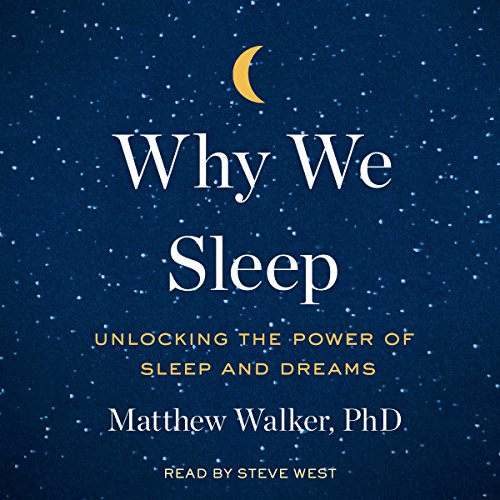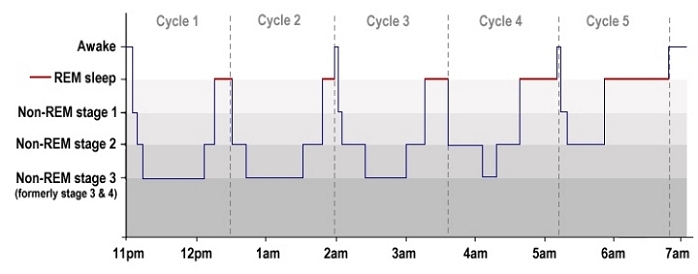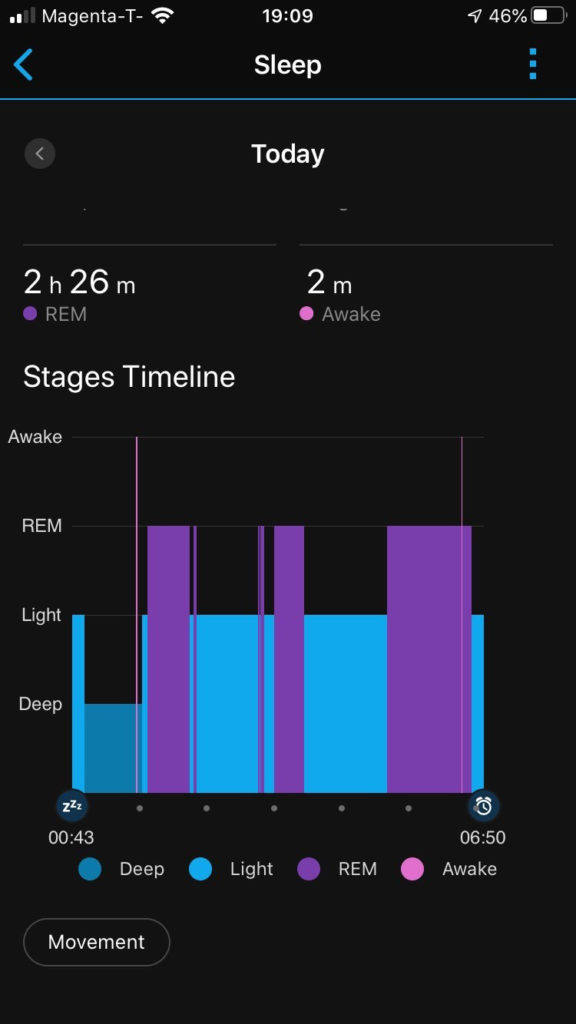February 2, 2020 Book Reviews

I picked the book “Why We Sleep” for listening after seeing it recommended by Bill Gates and hearing endorsement from a coworker. If you are like most of hard working people, say a software development engineer, you might think adding few extra hours of work would help in your career – it might but NOT if you steal those hours away from night’s sleep as it is simply counterproductive and all the way detrimental to your health and creativity. Read or scroll through the post to understand why sleep is important.
Importance of Sleep
The book emphasizes importance of sleep by providing numerous studies and explanations into mechanics of sleep. The book explains the impact sleep has on the quality of health, both physical and mental, as well as it explains profound effects it has on memory. In addition to all of these, not too well understood and intriguing process of dreaming is covered in great detail. I totally loved it.
If you don’t have time to read the book or this post, read these two quotes and then make your own conclusion on whether you want to to have a second thought:
…our lack of sleep is a slow form of self-euthanasia…
– Matthew Walker, Why We Sleep: Unlocking the Power of Sleep and Dreams
the shorter your sleep, the shorter your life. The leading causes of disease and death in developed nations—diseases that are crippling health-care systems, such as heart disease, obesity, dementia, diabetes, and cancer—all have recognized causal links to a lack of sleep.
– Matthew Walker, Why We Sleep: Unlocking the Power of Sleep and Dreams
Let me take you through four parts of the book:
Part 1. This thing called sleep
This chapter introduces sleep and explains benefits of sleep for the brain and memory.
Basic concepts:
- Circadian rhythm – natural sleep-wake cycle which is roughly 24h15min.
- Melatonin – natural hormone signaling darkness. Something you might want to consider when battling effects of JetLag.
- REM – Rapid Eye Movements type of sleep. This is non deep sleep when your body is still switched off, but brain is relatively active. This is also the phase when you have your dreams.
- NREM – Non REM sleep type. This is sleep type with slow brain activity.
- Sleep stages – there are 3 stages of NREM sleep with different depth and 1 stage of REM sleep in a single sleep phase.
- Sleep phase – normally people get 4 or 5 sleep phases over night with REM sleep becoming longer towards morning.
Here is how it typically looks like:

And this is how it might look for real (screenshot by a friend of mine):

When it comes to information processing, think of the wake state principally as reception (experiencing and constantly learning the world around you), NREM sleep as reflection (storing and strengthening those raw ingredients of new facts and skills), and REM sleep as integration (interconnecting these raw ingredients with each other, with all past experiences, and, in doing so, building an ever more accurate model of how the world works, including innovative insights and problem-solving abilities).
– Matthew Walker, Why We Sleep: Unlocking the Power of Sleep and Dreams
Other chapters of this part also cover how sleep is different in some animals (half-bran sleep, partial brain sleep); how sleeping patters change with our age (deep sleep in childhood, longer sleep for adolescent, fragmented sleep in midlife and old age); sleep differences in cultures (hunter-gatherer tribes, siestas in Greece).
Part 2. Why should you sleep?
Sleep is the aid for memory. It both helps you generate new memories and store new learnings. Moreover sleep helps with creativity.
Seven hours of sleep isn’t enough; concentration depends on sleep; you cannot catch up under-slept week days with even 3 long weekend recovery nights; no proof naps can replace sleep.
Another aspect is emotional stability. Just think how much agitated your kids are when they don’t get enough sleep. Adults are the same, though we are slightly better at suppressing our display of emotions.
The book then covers some areas of human health that are affected by sleep:
- length of your life and chances of diseases (obesity, dementia, cancer, etc);
- cardiovascular system (heart diseases);
- weight gain and obesity – simply put if you are trying to loose weight and don’t sleep enough you will have hard time;
- reproductive system – sleep loss reduces hormone levels, not even talking about looking unattractive;
- immune system – if you don’t sleep enough you have nigher chances to catch an infection.
Part 3. How and why we dream
Dreaming is a self therapy. What I remember from the book is that during REM sleep we cope with our emotional state, we heal ourselves.
REM sleep is the only time during the twenty-four-hour period when your brain is completely devoid of this anxiety-triggering molecule. Noradrenaline, also known as norepinephrine, is the brain equivalent to a body chemical you already know and have felt the effects of: adrenaline (epinephrine).
– Matthew Walker, Why We Sleep: Unlocking the Power of Sleep and Dreams
As I understand it – dreaming is a combination of past lived emotions and experiences from memories semi-randomly blended together sometimes generating patches of unusual display explaining creativity.
Lucid dreaming was another interesting topic covered in the book. 20% of people can control their dreams. My wife is good at this. I sometimes can make myself fly for longer, but that’s about it.
Part 4. From sleeping pills to society transformed
This part covers various sleep-related disorders and effects modern society has on quality of sleep (screen time, caffeine, alcohol, artificial light, room temperature) as well as sleeping pills (they are bad for your health and don’t really help too much).
Sleep therapy is one of the methods that really helps with sleep. One suggestion the book gives is to “reduce anxiety-provoking thoughts and worries”. If you know how the hell this can be done, let me know!
Twelve tips for healthy sleep
I just copy-pasted these 12 tips, but I do believe they are so important it does no harm to reiterate over them.
- Stick to a sleep schedule
- Don’t exercise too late in the day
- Avoid caffeine & nicotine
- Avoid alcoholic drinks before bed
- Avoid large meals and beverages late at night
- Avoid medicines that delay or disrupt your sleep (where possible)
- Don’t nap after 3pm
- Make sure to leave time to relax before bed
- Take a hot bath before bed
- Have a dark, cool (in temperature), gadget free bedroom
- Get the right sunlight exposure
- Don’t stay in bed if you (really) can’t sleep
Conclusion
I strongly recommend reading the book especially if you are not convinced that good night’s sleep is beneficial and are choosing to work long hours.
Have a good night’s sleep next night!

codemore code
~~~~